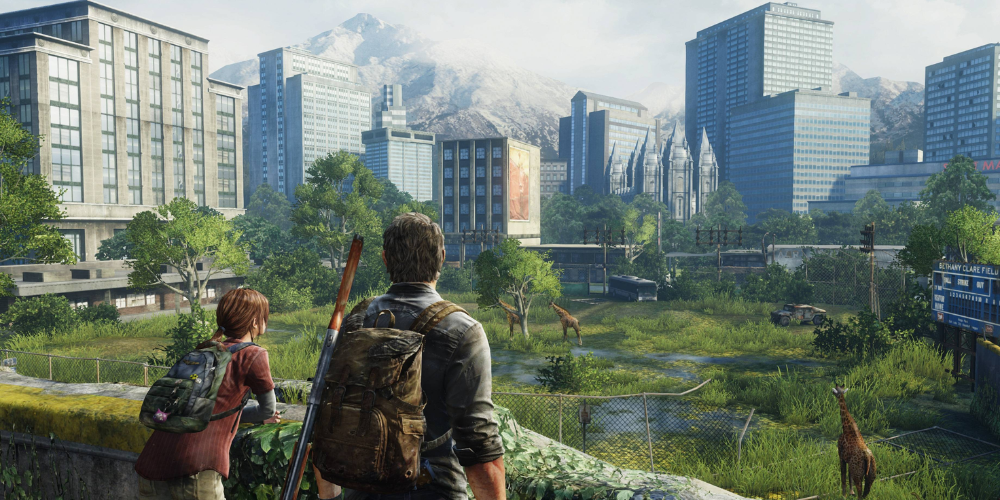The Last of Us: Survival Tips for the Post-Pandemic World

In the wake of a global catastrophe, lessons from fiction such as "The Last of Us" can provide us with vital insights into surviving and thriving in a world forever altered by the pandemic. While the narrative of "The Last of Us" is steeped in drama and the fantastical, the core survival principles it explores—resourcefulness, resilience, and the importance of human connections—remain profoundly relevant to our reality. This guide outlines comprehensive strategies for adapting to the post-pandemic landscape, emphasizing preparation, mental health, community building, and sustainable living as pillars for a resilient future.
1. Preparation is Key: Mastering the Basics of Survival
Survival in a post-pandemic world begins with the basics: water, food, shelter, and security. Ensuring access to clean water through purification methods like boiling, chemical treatment, or filtration is crucial. Stockpile non-perishable food items and learn preservation techniques to extend the lifespan of perishable goods. Secure a safe shelter, reinforcing it against potential threats and weather conditions. Finally, security measures should be established, focusing on both physical fortification and personal safety practices.
Learning and honing survival skills are also fundamental. Basic first aid, understanding navigation with and without technological assistance, and developing self-defense skills adapted from "The Last of Us" are critical in ensuring your safety and well-being. Enroll in courses, seek knowledge from credible sources, and practice regularly to keep skills sharp.
2. Mental Health and Resilience: Staying Strong

The psychological impact of surviving a pandemic and adapting to a new world order cannot be underestimated. Prioritizing mental health is essential for long-term survival and quality of life. Engage in regular physical activity and mindfulness practices such as yoga to reduce stress. Foster positive relationships and seek out support groups or professional mental health services when needed. Learning from characters in "The Last of Us," facing challenges with determination and finding purpose amidst chaos can guide one towards resilience.
3. Sustainable Living: Adapting to the Environment
Sustainability is key to long-term survival in a post-pandemic world. Embrace practices that reduce waste and reliance on scarce resources. Growing your own food through gardening or permaculture not only ensures a steady supply of fresh produce but also reconnects you with the Earth, providing psychological benefits. Invest time in learning traditional crafts and repair skills, enabling you to create and mend clothing, tools, and other essential items. Harnessing renewable energy sources can provide independence from the grid, making your lifestyle more sustainable and resilient.
4. Resource Management: Scarcity and Innovation
Inspired by "The Last of Us," efficient management of resources becomes a cornerstone of survival. Inventory management - knowing what you have, what you need, and how to obtain or create it - is essential. Cultivate a mindset of innovation and adaptability, repurposing materials and resources in creative ways to meet your needs. Bartering and trading within your community can also be a valuable strategy for acquiring goods and services without relying on traditional currency.
5. Community and Cooperation: The Strength of Connection

The importance of human connection and cooperation in "The Last of Us" underscores a critical survival truth: we are stronger together. Building and maintaining a supportive community is invaluable for mutual assistance, emotional support, and collective defense. Engage with your local community, participate in or organize community support initiatives, and foster a culture of cooperation and trust. Skills and resource sharing among community members can significantly enhance collective resilience and well-being.
6. Understanding and Adapting to New Threats
As depicted in "The Last of Us," the world post-pandemic may present new threats that require vigilance and adaptability. Stay informed about potential dangers, whether they be environmental changes, disease outbreaks, or shifts in social dynamics. Developing contingency plans for different scenarios will ensure you are better prepared to face and overcome these challenges. Adaptability—mentally, physically, and strategically—is essential for navigating the uncertainties of a changed world.
7. Health Management: Prevention and Care
Maintaining health in a post-pandemic world extends beyond avoiding infection. Focus on holistic health management, incorporating preventive measures such as vaccination, nutrition, and fitness to bolster immunity and overall well-being. Ensure you have a basic understanding of medical care and maintain a well-stocked first aid kit for emergencies. Regularly update your knowledge and first aid supplies based on current health guidelines and practices.
8. Education and Continuous Learning

The rapid changes and challenges of a post-pandemic world necessitate a commitment to continuous learning and adaptation. Stay informed about technological advancements, environmental issues, and global trends that may impact your survival strategies. Embrace new skills and knowledge that enhance your adaptability, resilience, and quality of life. Education, whether formal or self-directed, becomes a tool not just for personal improvement but for community empowerment as well.
9. Ethical Considerations and Humanity
Inherent in "The Last of Us" are lessons on the importance of ethics and humanity. Faced with survival, ethical dilemmas often arise, challenging us to make difficult decisions. Upholding your values and principles is vital, as these guide actions and decisions that impact both individual and communal well-being. Promote a culture of empathy, respect, and transparency within your community, recognizing that the survival of humanity depends not only on our physical resilience but on our moral strength as well.
10. Preparing for Recovery and Rebuilding
Finally, survival in a post-pandemic world is not just about enduring immediate challenges but also about preparing for long-term recovery and rebuilding. Look beyond survival to the restoration of society and the Environment, envisioning a world that learns from past mistakes. Invest in knowledge and infrastructure that support sustainable development, resilience, and peace. Engage in dialogues and initiatives focused on recovery, setting the foundation for a stronger, united, and thriving global community.
Surviving and thriving in the aftermath of a pandemic requires more than just physical resources and skills; it demands mental fortitude, community, adaptability, and vision. Drawing lessons from "The Last of Us," we can navigate the challenges of a post-pandemic world with resilience, empathy, and innovation, working towards a future where humanity not only survives but flourishes.







